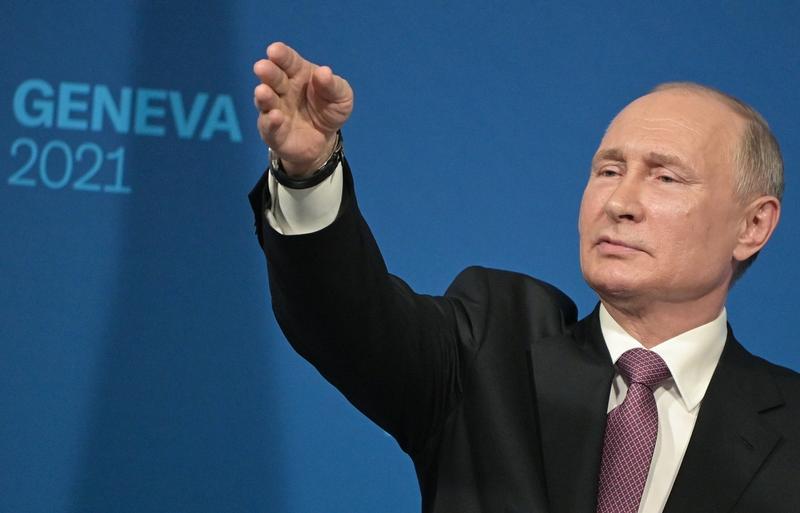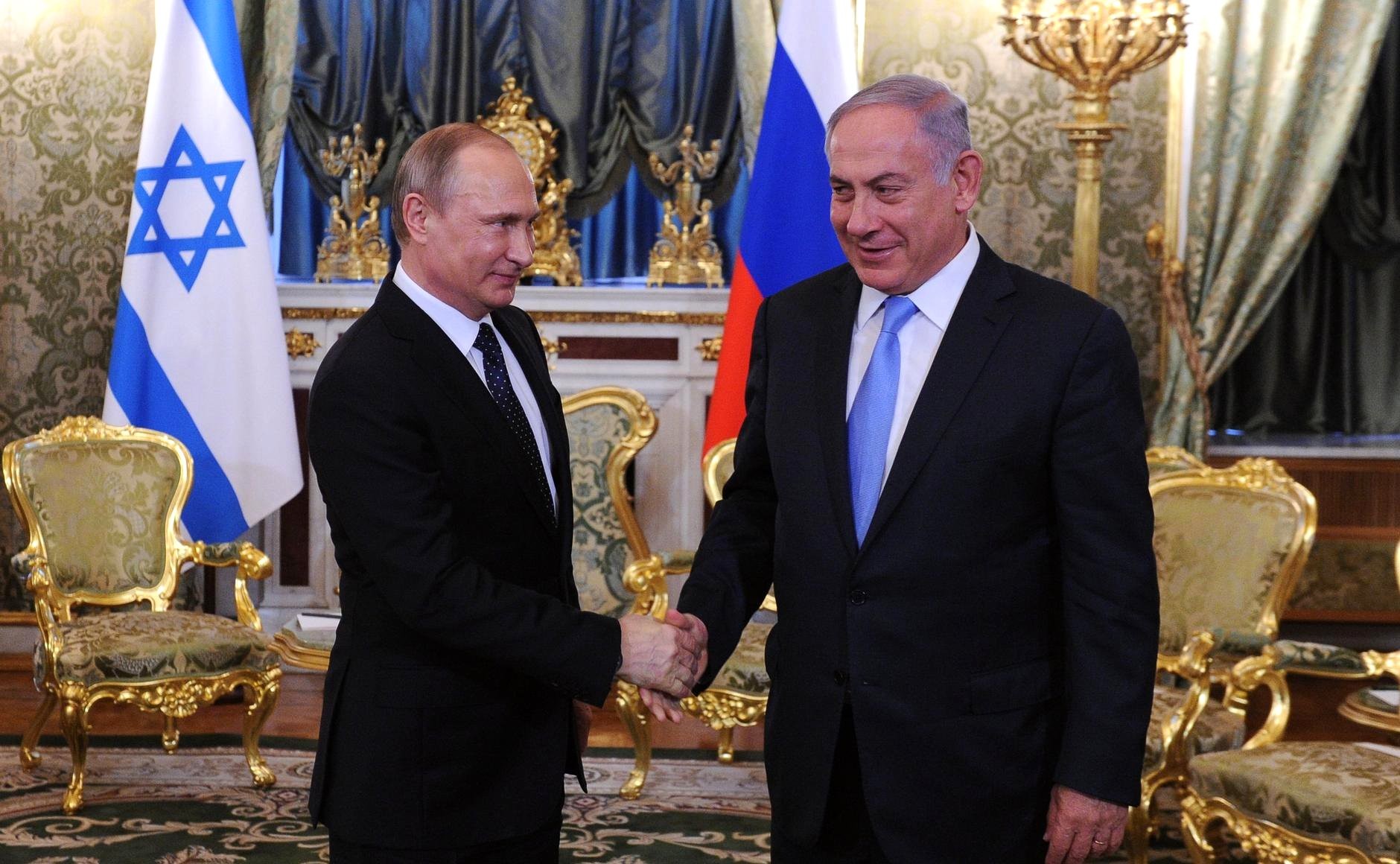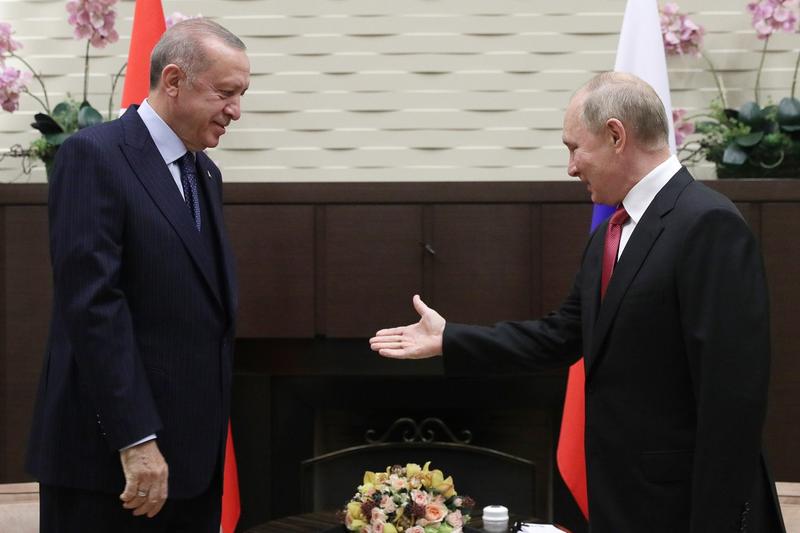
Since the war in Syria, Moscow has been focusing and pursuing political and military strategies in the region in the eyes of Westerners who have neglected the relationship that was created and still affects the Russian-Ukrainian war. What needs to be done in order not to leave Putin free land in Europe and the Middle East?” Il Giornale asks.
The war in Syria and the participation of Russia, the beginning of Putin’s strategy
2011: Protests begin in Syria, which are suppressed in blood. A year later, Russia and Iran are coming to the aid of the Syrian regime of Bashar al-Assad with military supply lines to ease its international isolation and check the advance of jihadist groups.
Russian President Vladimir Putin’s dramatic move to send troops, weapons and aircraft to Syria changed not only the civil war on the edge of the Mediterranean Sea, but also Russia’s position in the international community.
Isolated by Western sanctions over its annexation of Crimea and support for separatists in eastern Ukraine, Moscow has redoubled its support for the struggling Syrian regime and sent a clear signal that there can be no solution to the bloody catastrophe in the region without Moscow.
“Putin and the Kremlin had a clear goal to overcome the international isolation caused by Ukraine,” military analyst Oleksandr Golts explains to The Guardian.

Vladimir Putin Photo: Sergey Guneev / Sputnik / Profimedia
It was Putin who updated his foreign policy plans in 2013, emphasizing the need to oppose the economic and political hegemony of Western states, which was then sharply declining.
And it was in the Syrian conflict that relations between Moscow and Tehran became a real ally, as evidenced by the development of Shahed 136 combat drones, manufactured in regime-controlled territories of Syria, which are now used in Ukraine.
How did Putin manage to keep Netanyahu close?
The close alliance between Russia and Iran does not leave Israel indifferent. Benjamin Netanyahu conspired with Putin during previous terms to limit Iran’s influence in Syria, seeing him as the only one capable of keeping all Iranian-affiliated and funded groups such as Hezbollah and Hamas at bay.
Despite the close friendship established with Putin, Tel Aviv has realized that the relationship between Moscow and Tehran goes far beyond an alliance of convenience. Suffice it to say that only the Russian military can authorize Israeli raids in Syria, which are essential to contain Iranian targets located along Israel’s northern border.
Thanks to this strategy, Putin manages to maintain indirect and constant pressure on Israel.
This explains, at least in part, what is behind Tel Aviv’s reluctance to provide military aid to Ukraine, despite repeated calls from Volodymyr Zelenskyi, who has been asking Israel for months for its effective anti-missile defense systems, such as be Iron Dome.

Vladimir Putin and Benjamin Netanyahu (PHOTO: Kremlin.ru)
Two fundamental interests of Israel
There are rumors about the new Israeli government headed by Benjamin Netanyahu, who is considered the most right-wing so far, that he is inclined to deviate from the path of his predecessor regarding the war in Ukraine, reports Al Jazeera.
In new Secretary of State Eli Cohen’s first public speech on Jan. 2, he said the new administration would “say less” when it comes to Russia and Ukraine, implying that the administration would avoid taking a public stance on the conflict.
“The difference between the two governments is that the previous government was 100 percent ideologically sympathetic to Ukraine and tried to support Ukraine as much as it could without completely alienating the Russians,” Jonathan Reinhold, head of political research at Bar University. – Ilan University.
“This government is less concerned about ideological sympathies. They are not interested in democracy defeating dictatorship, and they will not necessarily be happy to see the success of international sanctions, because they may be afraid of precedent,” Reinhold added.
In addition, the new Israeli government is trying to send more positive signals to Russia.
“Israel has two fundamental national security interests vis-à-vis Russia and Ukraine that are consensual within Israel: maintaining good relations with the United States as a whole, and Russia’s acceptance of Israel’s freedom to operate militarily against Iranian forces, missile launch sites, and arms smuggling into Syria. Reinhold said.

Recep Erdogan and Vladimir Putin Photo: Volodymyr Smirnov / TASS / Profimedia
Turkey and Erdogan’s double game
This explains Erdogan’s role during these months of war: a member of NATO, but open to any discussions with Putin. The Sultan would have every reason to categorically oppose the Kremlin and provide full support to Kyiv.
The two sides are in military and other conflict in different parts of the world: in Libya, the two main actors support the war in opposite camps; in Nagorno-Karabakh, the shadow of two states hangs over every claim between Armenia (backed by Moscow) and Azerbaijan (backed by Ankara); Russian-occupied Crimea poses a huge threat to Erdogan as a presence that does not contribute to the balance of power in the Black Sea region.
Russia’s presence in Syria strongly affects Turkey’s own aid to Ukraine, despite the supply of Turkish Bayraktar drones, which were manufactured on Ukrainian soil. Russia is putting pressure on Ankara, threatening to create new waves of Syrian refugees, which is a major problem for Erdogan, but also for the EU.
The European Union is concerned about Turkey’s relations with Russia: “Reason for great concern”
The deepening of economic relations between Turkey and Russia is “a cause of great concern,” said the head of European diplomacy, Josep Borrell, in a letter to the European Parliament, dpa reports.
Another cause for concern is Turkey’s policy “not to join the EU’s restrictive measures against Russia,” the letter also said.
According to the same report, Borrell emphasized that the EU and Turkey are in a customs union that guarantees the free movement of goods, including dual-purpose, civilian and military products. It is important that Turkey does not offer Russia any option to circumvent sanctions, Borrell warned.
The cult of Putin as state policy
One of the instructive and depressing things about international politics is the existence of the cult of Putin. There are a significant number of world leaders and influential political figures who deeply admire the Russian president, writes the Financial Times.
His fan club is global and spans Asia, the Middle East, America and Europe.
Dmytro Peskov, the Kremlin spokesman, was on to something when he noted in 2018 that “there is a demand in the world for sovereign leaders, for decisive leaders (…) Russia’s Putin was the starting point.”
One of the biggest dangers of the current crisis in Ukraine is that if Putin emerges seemingly victorious, his leadership style will become even more prestigious and attract even more imitators around the world.
Land grabs, military threats, lies, and murders will appear to be the techniques of the victor. Putin has already served as a model for a new generation of authoritarian and populist leaders, including in Europe and the United States.
Putin will not stop
In the Middle East, Putin continues to mobilize resources, from the military to the political, with support from the likes of Iran, which is sometimes openly talked about, but also more veiled ones like Turkey and Israel. It is these resources that must be directed to speeding up the end of the war in Ukraine.
sources: Magazine, Al Jazeera, dpa, HotNews.ro
Follow the latest events of the 308th day of the war in Ukraine LIVETEXT on HOTNEWS.RO.
Source: Hot News
Ashley Bailey is a talented author and journalist known for her writing on trending topics. Currently working at 247 news reel, she brings readers fresh perspectives on current issues. With her well-researched and thought-provoking articles, she captures the zeitgeist and stays ahead of the latest trends. Ashley’s writing is a must-read for anyone interested in staying up-to-date with the latest developments.